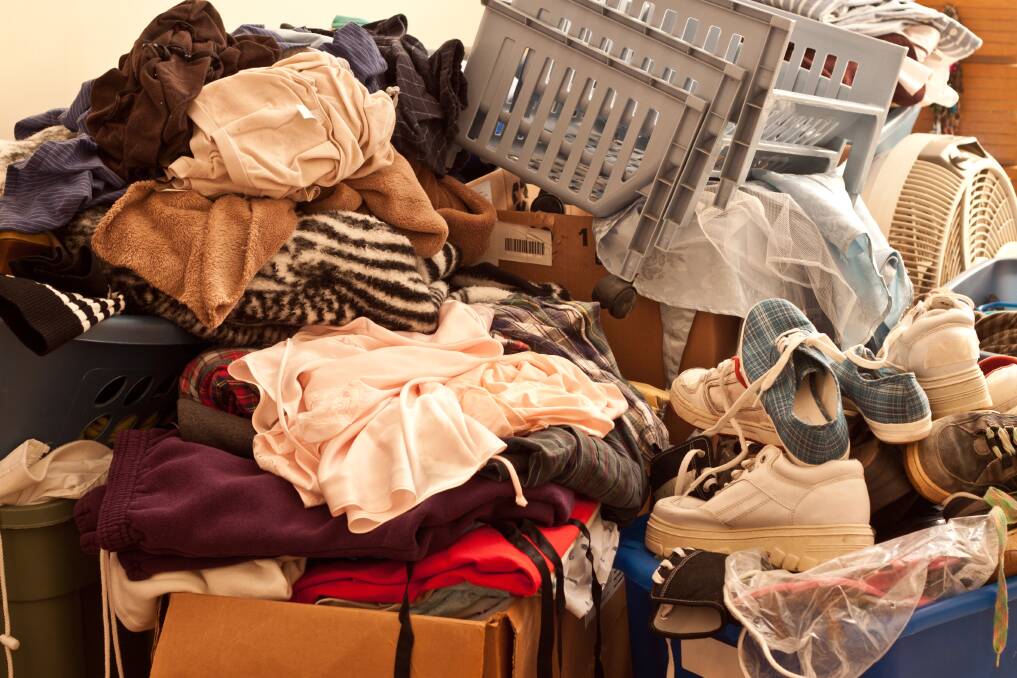
Did you do a spring clean-out this year, and really struggled to throw some things out, even though you know you won’t use them?
Subscribe now for unlimited access.
$0/
(min cost $0)
or signup to continue reading
This behaviour now has a name – FOTO, or the Fear of Throwing Out.
According to psychologist and expert on collecting and saving behaviour, Dr Jessica Grisham, it’s impacting more than just our storage space; it’s also weighing us down mentally and stopping us from embracing a happier life.
Recent research, commissioned by mobile service provider amaysim, found that four in five Australians confess to holding onto things they no longer need, for reasons they can’t explain.
By keeping them around and not using them, items can change from being a source of pleasure to a source of angst
- Dr Jessica Grisham
More than half these people admit to feeling guilty or frustrated about the things they can’t bring themselves to throw out. Clothes (64 per cent), travel mementos (48 per cent) and books (47 per cent) top the FOTO list.
“Often people keep hold of things that remind them of happy times, or because they have spent a lot of money on an item, perhaps when starting a new hobby or fitness regime,” Dr Grisham said.
“By keeping them around and not using them, items can change from being a source of pleasure to a source of angst. This negative feeling may linger for as long as they are unable to throw the thing away.”
The research found that 86.2 per cent of people have struggled to throw things away because they hope to be able to use it in future and 64.7 per cent said it was because they have spent too much money on it.

Some of the respondents said they would find it easier to get rid of something if they could take a photo or video of it, while just under half said they tend to buy too many things to start with, and just more than half admit to only using their FOTO item once or a few times and have stopped now.
Overcoming FOTO and liberating yourself can be as easy as identifying those few things in life and taking the plunge. 77 per cent of people confirmed they feel happier after getting rid of things they no longer need.
“By breaking the habit and removing a few key things we’ve been holding onto for too long, most people experience a sense of liberation that will drive them to do more of the same.
By overcoming FOTO, people can improve their mental wellbeing as it can help them embrace who they are today by having just the things they need around them,” Dr Grisham said.
So get ruthless and enjoy more storage and a lighter mind.
The research was conducted by Pureprofile in November 2017 on behalf of amaysim, surveying a nationally representative sample of 1,238 respondents in Australia aged 18 and over.

